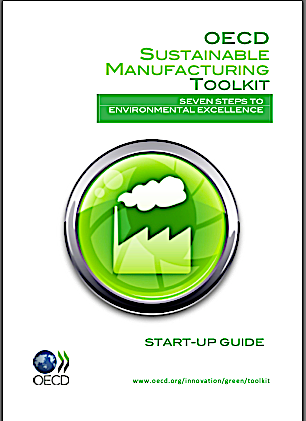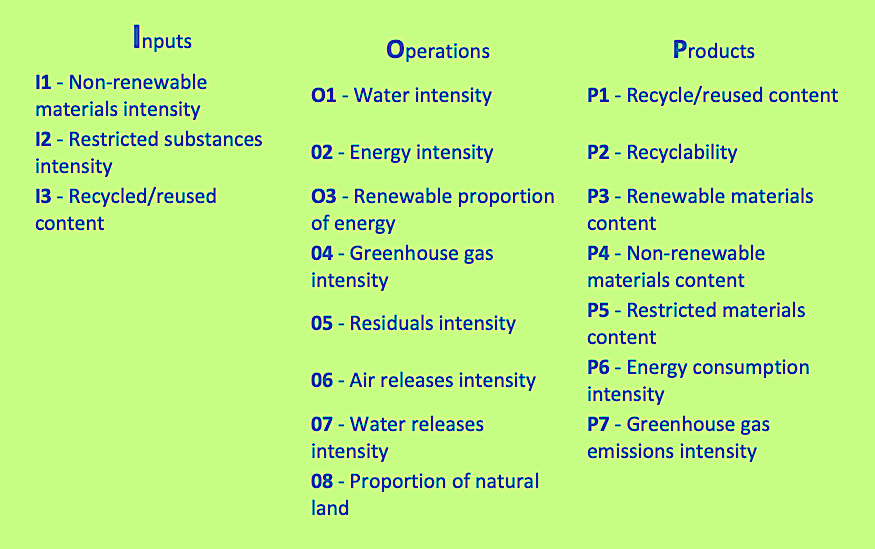Sustainable manufacturing is a relatively new, but important driver in industry. That means many plant professionals involved in manufacturing operations may be seeking good sources of information to help launch their sites’ journeys. Such resources are out there and readily available. For example, as I’ve mentioned in past articles and columns, the American Society for Testing and Materials, now known at ASTM International, (ASTM, astm.org), has already developed standards for sustainable manufacturing—and continues to develop them.
ASTM also created Smart and Sustainable Manufacturing Systems (SSMS), a peer-reviewed journal for sustainable manufacturing, in 2017, to provide academics with a publishing outlet for the results of their research. There are several other journals that address various aspects of sustainable manufacturing, including the International Journal of Sustainable Manufacturing (IJSM) and the Journal of Cleaner Production. These are all excellent standards and academic sources of information. However, here, I’m pleased to discuss the “OECD Sustainable Manufacturing Toolkit,” created by the Organization for Economic Cooperation and Development (OECD, oecd.org). The best part is this document is free.

Click On This Link To Download
“OECD Sustainable Manufacturing Toolkit “
PRACTICAL INSIGHT, PLAIN LANGUAGE
The “OECD Sustainable Manufacturing Toolkit” is a great introduction to the broad field of sustainable manufacturing. It begins by discussing the crucial goal of meeting economic, societal, and environmental stakeholder needs—the so-called ‘triple bottom line”—and why it’s important (and valuable) for organizations to make their production processes more sustainable.
I really like how this toolkit is laid out. It discusses in, plain language, the environmental aspects of the three major elements of sustainable manufacturing—Inputs, Operations and Products. The toolkit also includes a valuable set of 18 sustainable metrics built around those three processes (see figure below). Metrics are especially helpful for any organization that’s starting a journey toward sustainable manufacturing. As noted in his book The Seven Habits of Highly Effective People, Stephen Covey taught us all to “begin with the end in mind.”

18 Sustainable Metrics from the “OECD Sustainable Manufacturing Toolkit”
YOUR 7-STEP GAME PLAN
The “OECD Sustainable Manufacturing Toolkit” provides a game plan for starting your journey. It includes the following seven steps:
1. Prioritize your impacts so that you address them in order of importance.
2. Choose the particular aspect of sustainable manufacturing that you want to measure, and define the data needs for monitoring your performance.
3. Measure the inputs used in your production processes relative to the OECD KPIs I1 through I3.
4. Assess the operations of your facilities relative to the OECD KPIs O1 through O8.
5. Evaluate your products relative to the OECD KPIs P1 through P7.
6. Understand your results and undertake the necessary analysis to formulate an action plan.
7. Take actions to improve your performance.
I’ll be discussing each these seven steps individually with regard to relevant OECD KPIs in future issues of our “Dispatches from the Plant” newsletters and The RAM Review. Now, though, I encourage you to download and review the “OECD Sustainable Manufacturing Toolkit” by clicking above link.
In the meantime, if you have any specific questions and/or sustainable-manufacturing topics you would like addressed in The RAM Review, please email me (dtroyer@theramreview.com). I look forward to your input as we embark upon the important journey to sustainability.TRR
ABOUT THE AUTHOR
Drew Troyer has 30 years of experience in the RAM arena. Currently a Principal with T.A. Cook Consultants, he was a Co-founder and former CEO of Noria Corporation. A trusted advisor to a global blue chip client base, this industry veteran has authored or co-authored more than 250 books, chapters, course books, articles, and technical papers and is popular keynote and technical speaker at conferences around the world. Drew is a Certified Reliability Engineer (CRE), Certified Maintenance & Reliability Professional (CMRP), holds B.S. and M.B.A. degrees, and is Master’s degree candidate in Environmental Sustainability at Harvard University. Contact him directly at 512-800-6031 or dtroyer@theramreview.com.
Tags: reliability, availability, maintenance, RAM, environmental sustainability, sustainable manufacturing, energy efficiency, safety, climate change, ASTM International, ASTM, Organization for Economic Cooperation and Development, OECD



